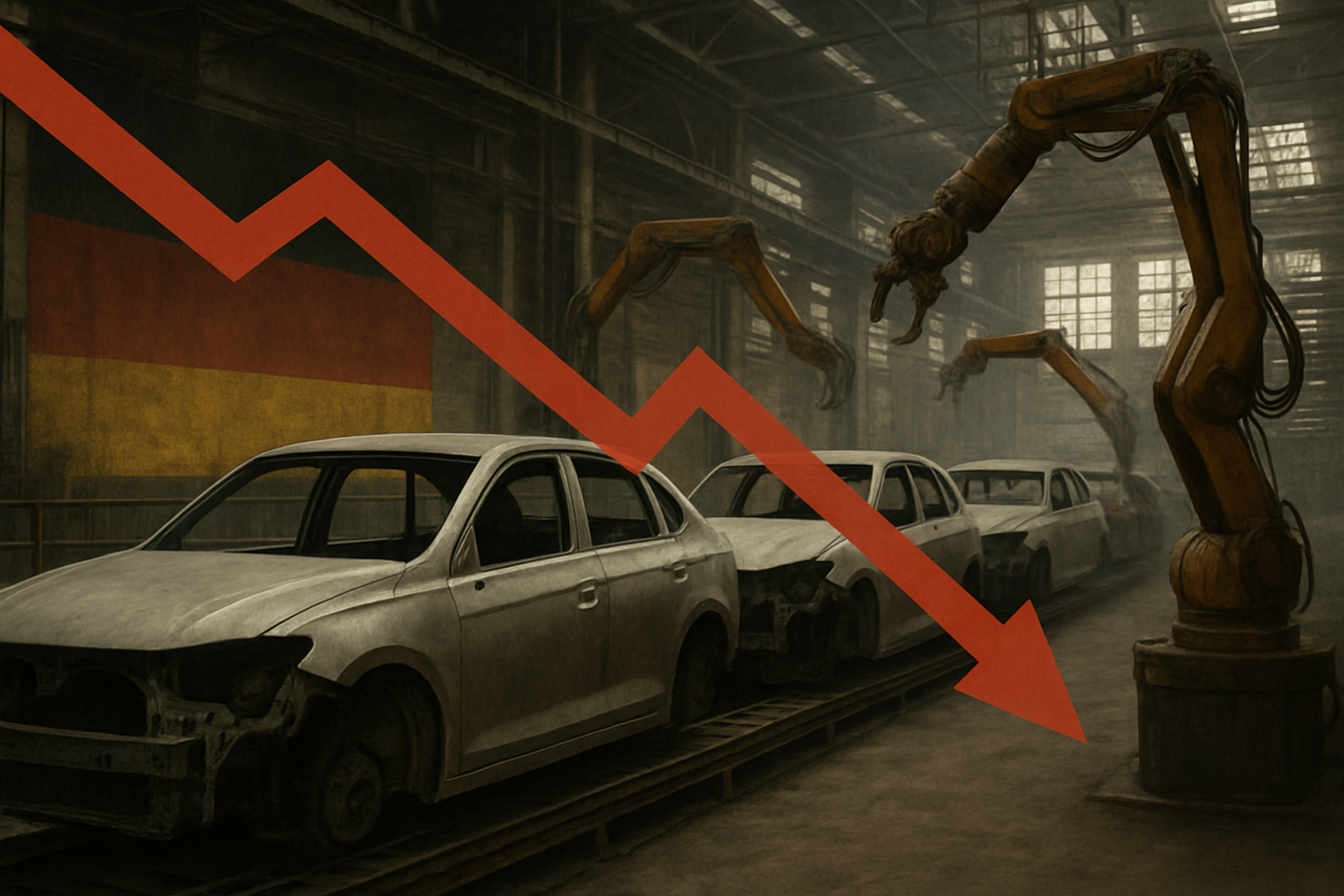Something's gone terribly wrong in the workshops of Europe's manufacturing titan. Germany's industrial output just nosedived in a way that's got everyone from Frankfurt to Brussels reaching for the panic button.
The August numbers? Brutal. Industrial production plunged 4.3% month-over-month—not a gentle dip, mind you, but a free-fall that blew past even the gloomiest forecasts. And if that wasn't enough to make you wince, the auto sector (you know, that little industry that's only been Germany's pride and joy for generations) collapsed by a staggering 18.5%. In a single month.
I've covered European economic trends since the early 2010s, and let me tell you—this isn't your garden-variety slowdown. This is the economic equivalent of hearing your car make that expensive-sounding noise right before a holiday weekend.
The Canary Isn't Just Sick—It's Gasping for Air
Look, Germany has always been Europe's reliable factory floor. While places like Britain and France pivoted toward financial services and digital economies, the Germans kept making... well, stuff. Really good stuff that people around the world would pay premium prices to own.
That's why these numbers matter so much. When Germany stumbles, the ripple effects wash across the entire continent.
The truly puzzling thing? The warning signs have been flashing for ages. Manufacturing PMIs (those monthly surveys that take the temperature of factory activity) have been in contraction territory since... when was it? Seems like forever now. Business confidence surveys have been gloomy as a November day in Hamburg. Factory orders? Sliding downhill for quarters.
And yet somehow—somehow—actual production had been hanging in there. Until now.
It's almost as if the German industrial complex has been running on fumes and backorders, a bit like those cartoon characters who don't fall until they look down and realize they're off the cliff. Well, they just looked down.
Cars, Kaput
That 18.5% automotive collapse deserves its own paragraph. Or three.
German carmakers (think BMW, Mercedes, Volkswagen) are facing what we might politely call a challenging transition period. They perfected the art of building precision diesel engines just in time for the world to decide it preferred batteries. They invested decades in manufacturing expertise that suddenly looks... dated.
(I toured a VW plant back in 2019, and even then you could sense the unease beneath the polished presentations about their electric future.)
It reminds me of watching Swiss watchmakers in the 1970s when quartz technology arrived—master craftsmen suddenly confronting the possibility that their expertise might become irrelevant. The difference? This transition is happening faster, with higher stakes, and with Chinese manufacturers nipping at their heels with cheaper EVs.
Why Everyone Should Care (Even If You Don't Drive a German Car)
Germany's industrial troubles send shockwaves far beyond its borders:
The euro is taking a beating—no surprise when your largest economy starts sputtering.
The European Central Bank now faces an even trickier balancing act. How do you fight inflation when your core economic engine is already stalling?
And those factories in Poland, Czechia, and Hungary that supply components to German manufacturers? They're already feeling the squeeze.
There's awful timing, and then there's this—hitting a rough patch just as winter approaches and energy markets are getting jittery again. Not 2022-level crisis jittery, thank goodness, but uncomfortable nonetheless.
Buying Opportunity or Beginning of the End?
So what's a market watcher to make of all this? Is it time to scoop up deeply discounted German industrial stocks, or run for the hills?
The optimistic view—and there's always an optimistic view—suggests this might be a capitulation moment. The final terrible data point before things start improving. German manufacturing has certainly bounced back from dire straits before. These folks invented the post-war "economic miracle," after all.
The DAX is trading at a significant discount to American indices. There's a lot of bad news already baked in, as they say.
But... (and you knew there was a "but" coming)... the challenges facing German industry seem more existential this time around. The energy cost gap with American competitors isn't disappearing anytime soon. The automotive transition is proving bumpier than expected. And China—once a reliable customer for German machine tools and luxury cars—is now determined to make those things itself.
Having watched German industry navigate previous crises, I'm reluctant to count them out entirely. These are the people who turned "German engineering" into a global shorthand for quality. They won't surrender that reputation easily.
Still, even the most skilled mechanics need time when rebuilding an engine. Europe's industrial powerhouse will likely sputter a while longer before finding its rhythm again. The real question is whether they're making minor repairs or facing a complete overhaul.
